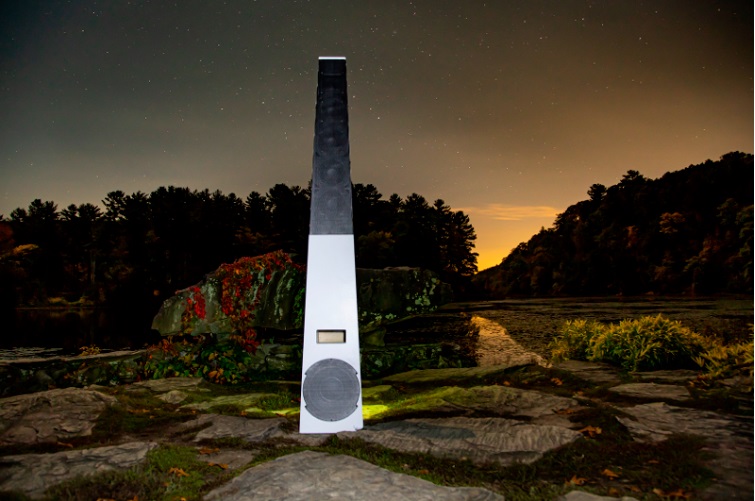Water rhythms is a story of climate change told by ice and water. It is a story about the dualism of water, the universal connector of nature and humans. It is also an intergenerational story of the rapid change and depletion of our glaciers and freshwater sources worldwide.
Glaciers and ice sheets are the world’s water towers; only 2.5% of water on Earth is freshwater, and of this, 99% comes from glaciers and ice sheets. As glaciers worldwide shrink and disappear in response to climate change, water availability and water quality are being threatened for the billions of humans and more-than-humans who live downstream. As the ice disappears, these water rhythms are also shifting and fading from view.
Michele Koppes (Glaciologist, Geographer, Climate Scientist) and Susie Ibarra (Composer, Percussionist, Sound Artist), have been sonically mapping changes in glacier runoff from the source to the sink, from the glaciated mountains to the ocean, from some of the world’s most important water towers, including the Coast Mountains of the Pacific Northwest, the Greenland Ice Sheet, and the Indian Himalaya. Their fieldwork and recordings have been supported to date by Bennington College, the University of British Columbia, the Asian Cultural Council, TED, the Fine Acts Foundation and a National Geographic Explorer Storytelling grant. Through these field recordings taken from both above and below the ice and water, and including the sounds and music of the people who live along their shores, they are capturing the sounds of climate change on our lifeblood, freshwater, and listening to the stories the water is telling us about a world of increasing ecological precarity.
Humans are inextricably connected to the Earth’s freshwater; the same rhythms of glacial meltwater that flow from the mountains to the sea flow through our bodies, our histories and our music. In recording the sounds of glacier melt, we discovered that these sounds were not simply ambient, but indeed very musical. They have precise rhythms, a precise tempo/bpm (beats per minute). These tempos match the sweet spot at which pieces of music from all over the world are created and played. They also match our heartbeats at birth. Our connection to water is hence so much more intimate than we think. A world losing its flowing freshwater is not only a world of increasing ecological precarity. A world losing its flowing water is hence a world losing its music, its culture and its humanity.

